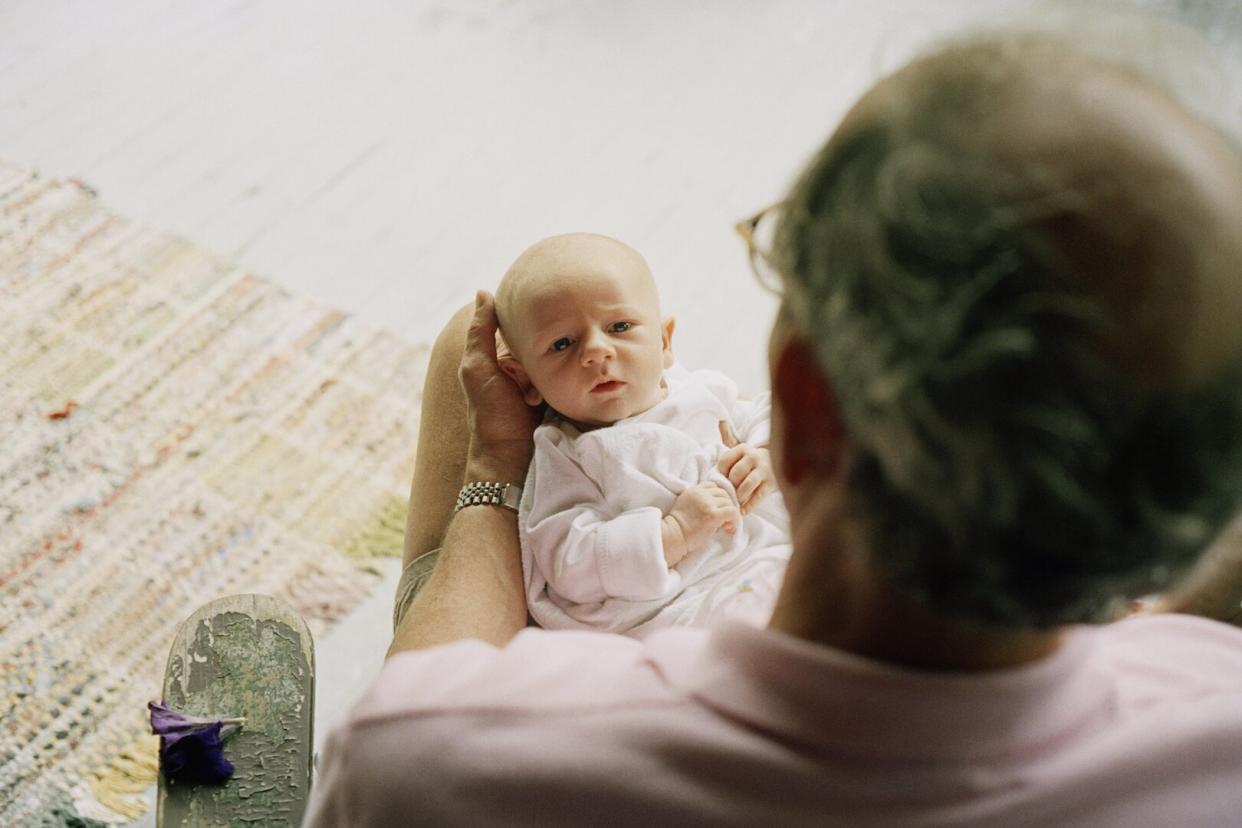Men Delaying Parenthood Until After 35 Should Consider Freezing Sperm, New Study Concludes

Getty Images
May 13, 2019
When it comes to having children, we hear a lot about women's biological clocks and the pregnancy risks for moms over 35. But according to a new study from Rutgers, men fathering kids at an older age may put the health of their partners and unborn children at risk.
The study, which reviewed 40 years of research on the effect of parental age on fertility, pregnancy and the health of children, showed that men ages 45 and older put their partners at an increased risk for pregnancy complications like gestational diabetes and preeclampsia. The children born to older dads were found to be at a higher risk of being born prematurely and had higher incidences of birth defects, such as congenital heart disease and cleft palate. Children born to older fathers were also found to have an increased likelihood of developing childhood cancers, psychiatric and cognitive disorders, and autism.
"Basically what the study means to prospective parents, (both mother and father) is that the longer one waits after age 35 years to have child, the higher the risk of fertility issues, pregnancy issues and baby issues," study author Gloria Bachmann, M.D., told Parents.com. "That doesn't mean that one can't have a successful pregnancy and a desired outcome after this age, but the risks of problems increases."
The study, which confirmed that the risk of male infertility increases with age, also indicated there may be a correlation between older fathers and poorer sperm quality. And although more research is needed to prove this correlation, Dr. Bachmann would like to see men made more aware of the effect their age will have on fertility, pregnancy and the health of their partner and children.
"Traditionally this increased risk was felt to only involve the mother's age, but research clearly shows that this increased risk also involves the father's age," said Dr. Bachmann, director of the Women's Health Institute at Rutgers Robert Wood Johnson Medical School in New Brunswick, New Jersey. "Clinicians should not only address future family building with women, but also with men as well. And, just as some women have decided to bank egg cells at a younger age so that in the future they have more family building options, men also should be told about this option of sperm banking."
Dr. Bachmann recommends that if men plan on delaying fatherhood, they should consider freezing sperm before their 35th birthday—or at least by their 45th birthday—to decrease the increased risks to the health of the mother and child.

